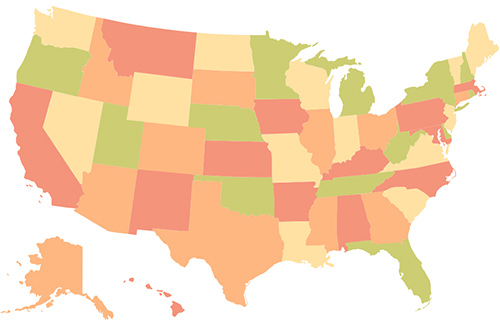Legal Rights
Federal and state laws provide legal protections for children with chronic illnesses and their right to equal access to education.
Interested in the laws for your state?
View State Laws

Two federal laws provide legal protections to children with chronic illnesses and ensure their equal access to education by providing necessary educational accommodations. These include the Individuals with Disabilities Education Act (IDEA) and Section 504 of the Rehabilitation Act of 1973 (Section 504). More detailed information on these laws is in the downloadable Project PENCIL Parents’ Guide and Teachers’ Guide.
Individuals with Disabilities Education Act (IDEA)
The Individuals with Disabilities Education Act (IDEA) is a federal law that guarantees a free appropriate public education to every student, between the ages of 3 and 22 with a disability in need of special education, including some students with chronic illnesses. IDEA defines FAPE as special education and related services provided at public expense provided through an Individualized Education Plan (IEP).
Under IDEA, schools must identify students with disabilities and determine how best to provide special education, related services, and educational accommodations to help the student access education. States implement IDEA differently, so click here for more information about IDEA in your state.
Section 504
Section 504 of the Rehabilitation Act of 1973 (Section 504) is a civil rights statute that prevents discrimination based on disability, including some chronic illnesses, and ensures that a student with a disability, including some students with chronic illnesses, receives equal access to education.
Schools determine how best to meet eligible students’ needs through the implementation of educational accommodations. Section 504 does not require schools to prepare a written plan, however, schools typically describe the educational accommodations that the student will receive in a document called a Section 504 plan. States implement Section 504 differently, so click here for more information about Section 504 in your state.
Hospital Homebound (HHB)
In addition to federal legal protections, some states have a supplementary program called Hospital Homebound (HHB), specifically for children who experience intermittent or full-time absences from school because of a chronic illness and require education in the hospital or at home. States without HHB programs may provide services to children in the hospital or at home through an IEP or Section 504 plan. Click here to learn about the HHB program in your state.